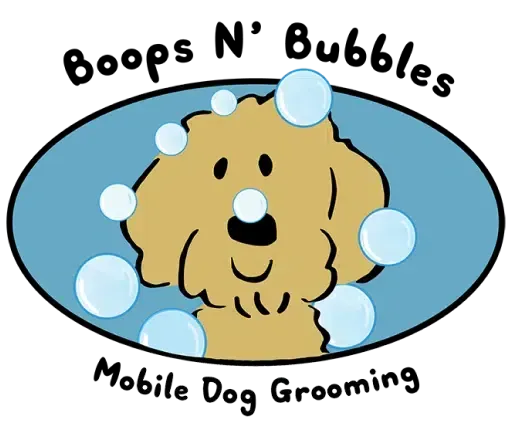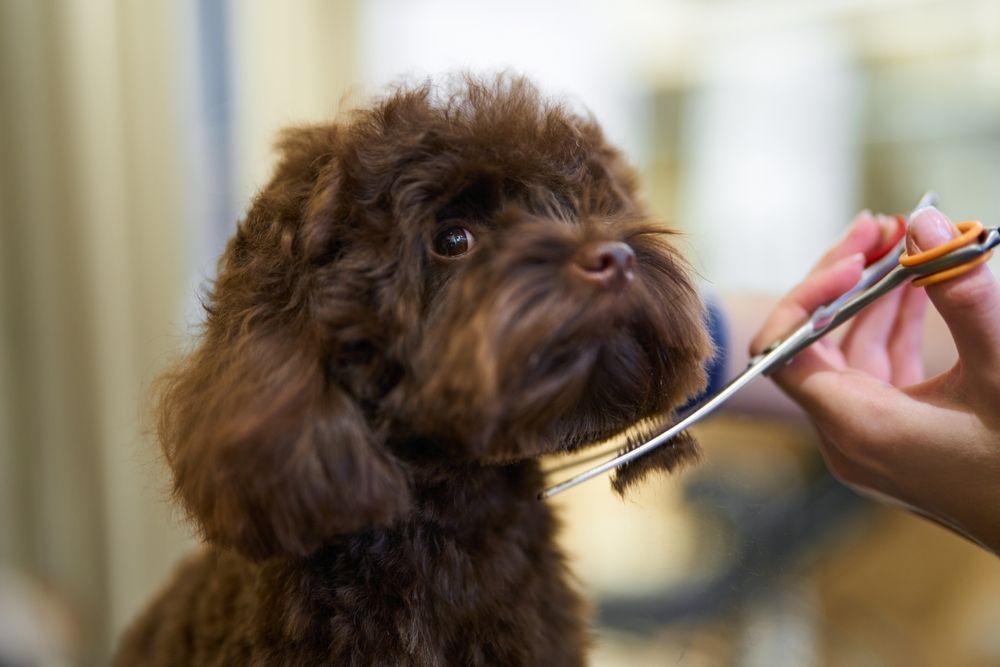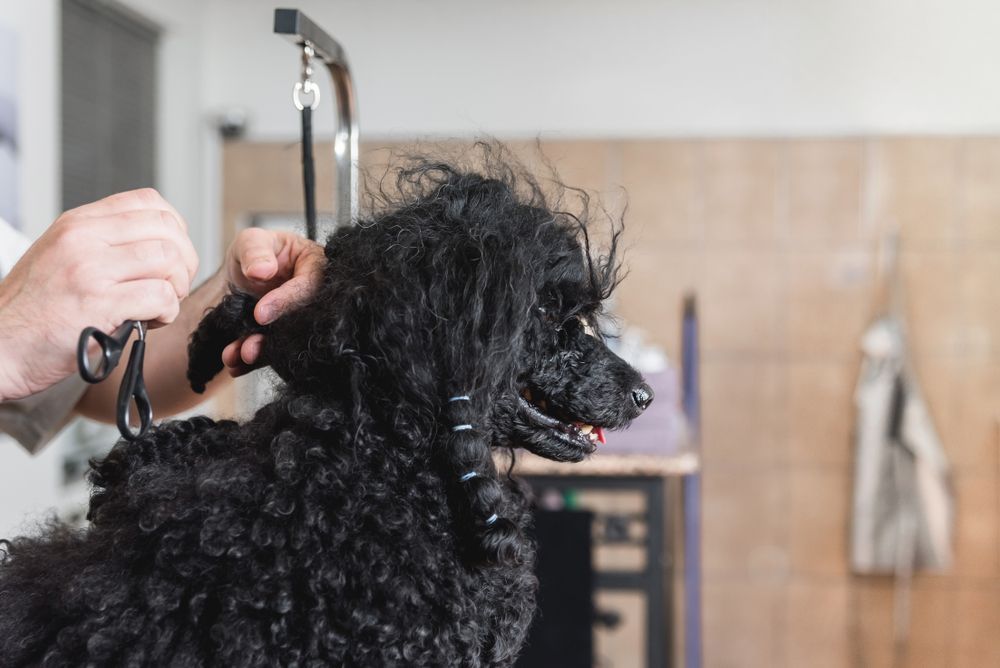Do Dogs Need Conditioners? Here's When It Helps
Every dog owner wants their pup to look and feel their best, and a shiny coat is part of that. But many wonder, do dogs need conditioner? It depends on coat type, skin health, and how often the dog is groomed. At Boops N' Bubbles, we know proper care goes beyond shampoo.
This guide covers when dog coat conditioning helps, the benefits of dog conditioner, and how to pick the right product. Whether your dog has a thick coat or smooth fur, using the right conditioner can make grooming easier and improve coat health.
What Does a Dog Conditioner Do?
Hydration and Coat Protection
A dog’s skin produces natural oils that protect the fur and keep it shiny. Shampooing, especially with strong cleansers, can strip these oils. The conditioner helps restore that balance. It locks in moisture, softens dry fur, and helps prevent tangles and matting in longer coats.
This kind of dog coat conditioning is essential for breeds with thick, curly, or delicate coats. It also supports healthy skin by forming a light barrier that reduces irritation and dryness after a bath.
Reducing Tangles and Shedding
The conditioner also makes brushing easier. Coats are less likely to snag, tear, or cause discomfort when they’re smooth and well-hydrated. For dogs with seasonal or year-round shedding, conditioners can help deShed a dog more gently by loosening dead hairs and reducing the chance of painful pulling or coat damage during grooming.
Why Consider a Conditioner for Your Dog?
A dog’s coat is more than just fur; it’s a protective barrier for their skin. However, factors like weather, allergies, or frequent baths can leave their coat dry or tangled. Dog coat conditioning helps restore moisture, reduce matting, and enhance shine. Unlike human conditioners, dog-specific products are pH-balanced for canine skin, ensuring safety and effectiveness.
Conditioners are beneficial for dogs with long, curly, or thick coats. For instance, breeds like Poodles or Shih Tzus often develop knots that conditioner can help detangle. Additionally, dogs with sensitive skin may benefit from conditioners that moisturize dog skin, soothing irritation and preventing flakiness.
Not every dog needs conditioner after every bath, but it can be a valuable tool in specific situations. Let’s explore when it’s most beneficial.
When Does Your Dog Need a Conditioner?
Certain conditions make dog coat conditioning a must. Here are the key scenarios:
- Dry or Itchy Skin: If your dog scratches often or has flaky skin, a conditioner can hydrate and soothe. Look for products with natural ingredients like oatmeal or aloe vera.
- Matted Fur: Long-haired or double-coated breeds, like Golden Retrievers or Huskies, are prone to matting. Conditioners smooth the fur, making it easier to brush out tangles.
- Frequent Bathing: Regular baths can strip natural oils from your dog’s coat. The conditioner restores moisture, keeping the fur soft and shiny.
- Harsh Weather: Cold winters or hot summers can dry out your dog’s coat. Conditioners help protect against environmental damage.
- Show Dogs or Special Occasions: For a polished look, conditioners add shine and manageability, perfect for competitions or photoshoots.
Benefits of Dog Conditioner
The benefits of dog conditioner go beyond aesthetics. Here’s why it’s worth considering:
- Moisturizes the Coat and Skin: Conditioners lock in hydration, preventing dryness and reducing dog dandruff.
- Reduces Shedding: By smoothing the coat, conditioners can minimize loose fur, especially for heavy shedders.
- Ease Brushing: Conditioners make grooming sessions quicker and less stressful by detangling knots.
- Enhances Shine: A well-conditioned coat reflects light, giving your dog a healthy, vibrant look.
- Protects Against Damage: Conditioners create a barrier against dirt, UV rays, and other environmental stressors.
- Pairs Well with a Bath with Premium Shampoos: This combo offers deep cleaning and lasting softness for a complete grooming experience.
Exploring Dog Conditioner Types
Not all conditioners are created equal. Understanding the different dog conditioner types helps you choose the right one for your pet. Here’s a breakdown of the most common options:
Leave-In Conditioners
Leave-in conditioners are sprayed or applied after bathing and left on the coat. They’re ideal for dogs with long or curly hair, like Goldendoodles or Maltese, as they prevent matting between baths. These products often contain lightweight oils or silicones to smooth the fur without weighing it down.
Rinse-Out Conditioners
Rinse-out conditioners are applied during a bath and washed off after a few minutes. They’re great for dogs with dry skin or those needing extra moisture. These conditioners often include ingredients like coconut oil or shea butter to nourish the coat.
Detangling Sprays
Detangling sprays are a type of leave-in conditioner explicitly designed for matted or tangled fur. They work well for breeds like Yorkies or Lhasa Apsos, making brushing easier and less painful for your dog.
Medicated Conditioners
For dogs with skin conditions like allergies or dermatitis, medicated conditioners can provide relief. These products often contain ingredients like hydrocortisone or tea tree oil to soothe irritation. Always consult your vet before using medicated products.
Choosing the right conditioner depends on your dog’s breed, coat type, and specific needs. For example, a
teddy bear cut on a fluffy breed might pair well with a leave-in conditioner to maintain softness.
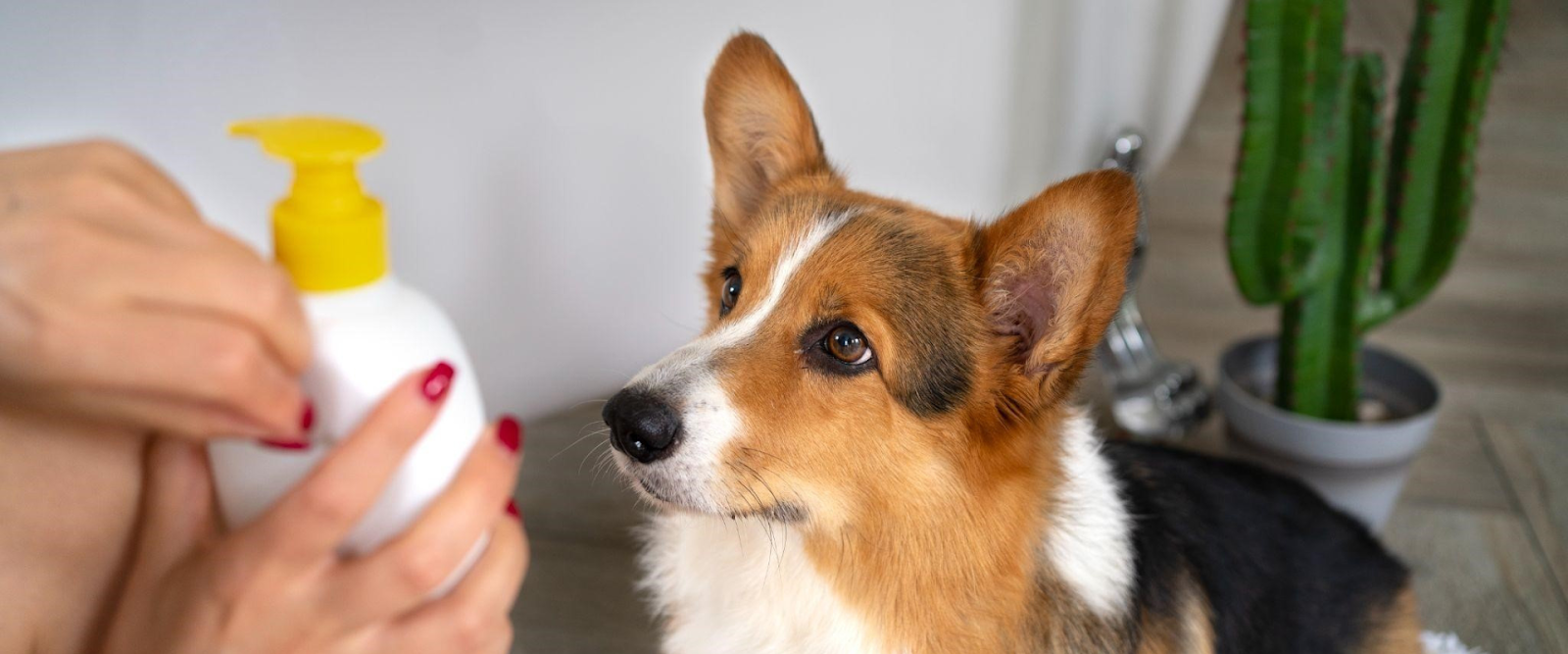
How to Use Dog Conditioner Properly
Using conditioner correctly ensures your dog reaps the full benefits of dog conditioner. Follow these steps for the best results:
- Bathe Your Dog: Start with a dog-specific shampoo to clean the coat thoroughly. Rinse well to remove all soap residue.
- Apply Conditioner: For rinse-out conditioners, massage a small amount into the coat, focusing on dry or tangled areas. For leave-in products, spray or rub evenly across the fur.
- Let It Sit: For rinse-out conditioners, follow the product instructions, usually 2–5 minutes. This allows the ingredients to penetrate the fur and skin.
- Rinse Thoroughly (if needed): For rinse-out conditioners, ensure all product is washed out to avoid residue buildup.
- Brush the Coat: After conditioning, gently brush your dog’s fur to distribute natural oils and remove any remaining tangles.
If this feels like a lot to manage at home, many pet parents prefer the convenience of mobile dog grooming, where trained professionals handle every step with the right products and techniques for each dog’s needs.
Signs Your Dog Might Benefit from Conditioner
There are a few clear indicators that answer the question, Do dogs need conditioners in their routine?
- Dry, brittle fur that lacks shine
- Tangles and mats that make brushing difficult
- Scratching or flakes, which may point to dry skin or dog dandruff
Should You Use a Human Conditioner on Dogs?
The short answer is no. Human conditioner should never be used on dogs. It’s made for a different skin pH and often contains fragrances or chemicals that can irritate a dog’s skin.
Dog skin is more sensitive than human skin, and using the wrong product can lead to dryness, itching, or even allergic reactions. While some pet owners think baby shampoo is a safe alternative, it’s still not formulated for canine needs and may disrupt natural skin oils.
To keep your dog safe and comfortable, always choose conditioners made specifically for dogs. They’re designed to hydrate without harming sensitive skin.
How Groomers Apply Dog Conditioner the Right Way
Groomers apply conditioner after shampooing, focusing on dry or tangled areas. They let it sit briefly, then rinse or use a leave-in if needed.
Mobile services offer added comfort by grooming in a familiar setting. A
hand blow-dry and brush is usually included to smooth the coat and lock in moisture.
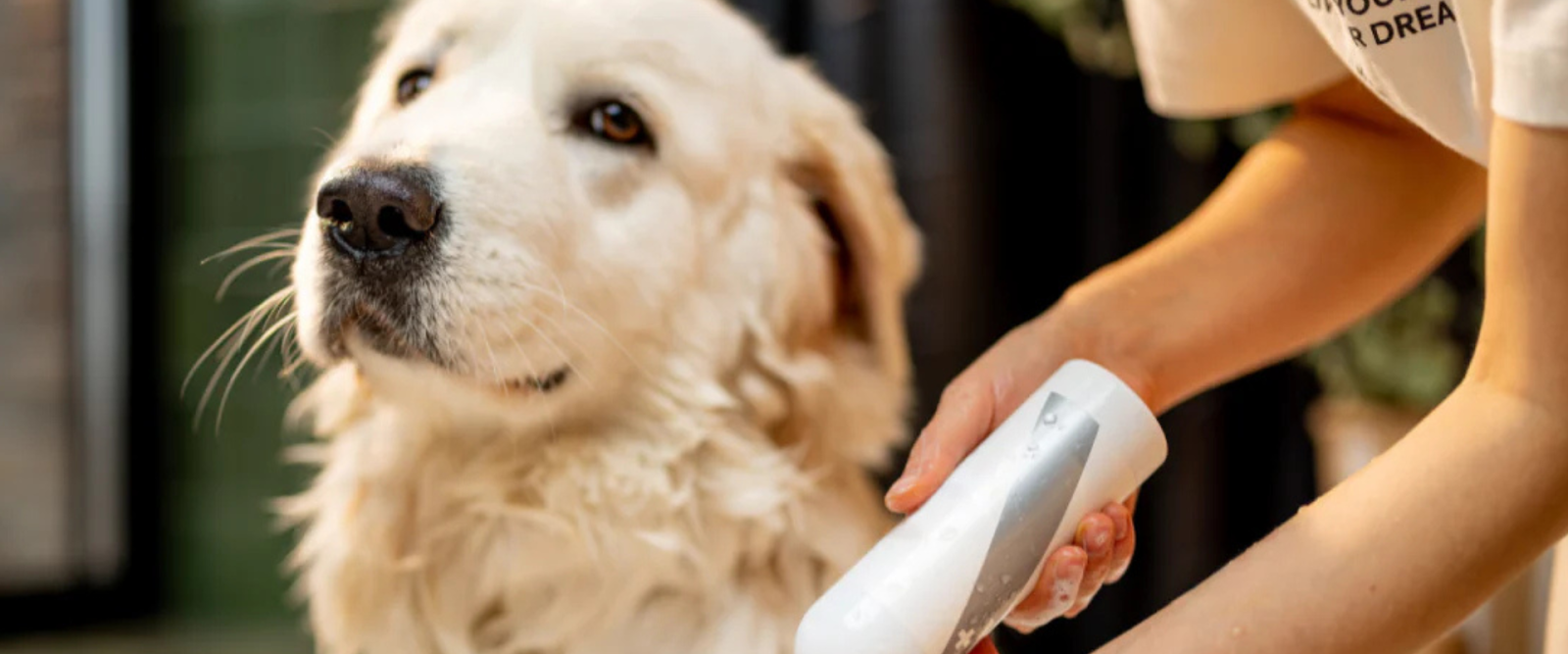
When Conditioner Doesn’t Help
If your dog continues to have dry skin, itching, or coat issues despite using conditioner, it may be time to consult a vet. Persistent problems can point to allergies, infections, or nutritional deficiencies that conditioner alone can’t fix.
In some cases, proper grooming services like professional dog ear cleaning or targeted treatments may be needed alongside veterinary care to resolve the issue entirely.
FAQs
Is conditioner safe for puppies?
Yes, but always choose a gentle, puppy-safe formula approved by a groomer or vet.
Can conditioners help with shedding?
Absolutely. Specific formulas support de-shedding and coat maintenance.
How do I know if my dog has dry skin?
Look for flakes, excessive itching, or a dull coat. A hydrating conditioner may help.
Conclusion
So, do dogs need conditioner? Not always, but for many, it can make a big difference in coat health, comfort, and grooming ease. From reducing tangles to soothing dry skin, conditioner offers noticeable benefits when used the right way.
It’s beneficial for dogs with long, curly, or sensitive coats or those who get bathed often. And when in doubt, professional groomers can guide you on what works best for your dog.
Book a Mobile Dog Grooming Service near you to give your pup the care it deserves.
